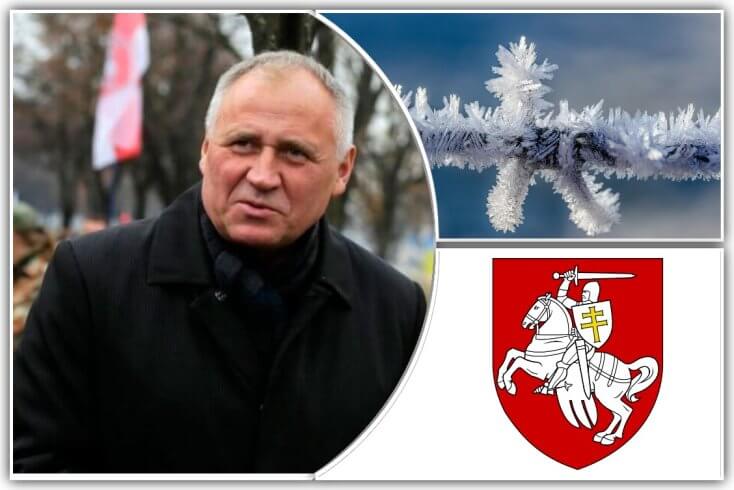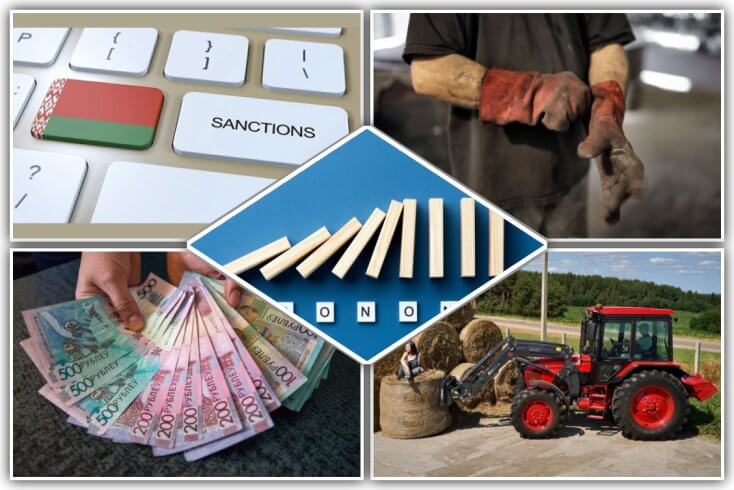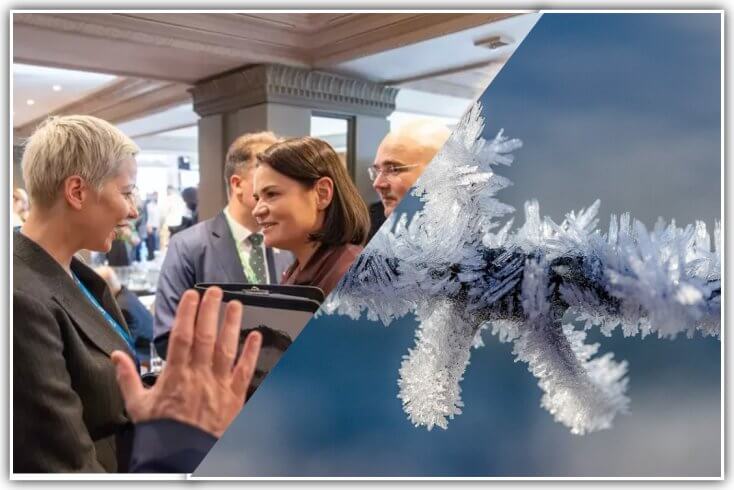Last week, school bells rang across Belarus, marking the end of the academic year. Graduation parties are scheduled for June 13, but this year’s festivities come with an ideological twist: schools have been screening propaganda films aimed at discouraging 11th-graders from enrolling in foreign universities.
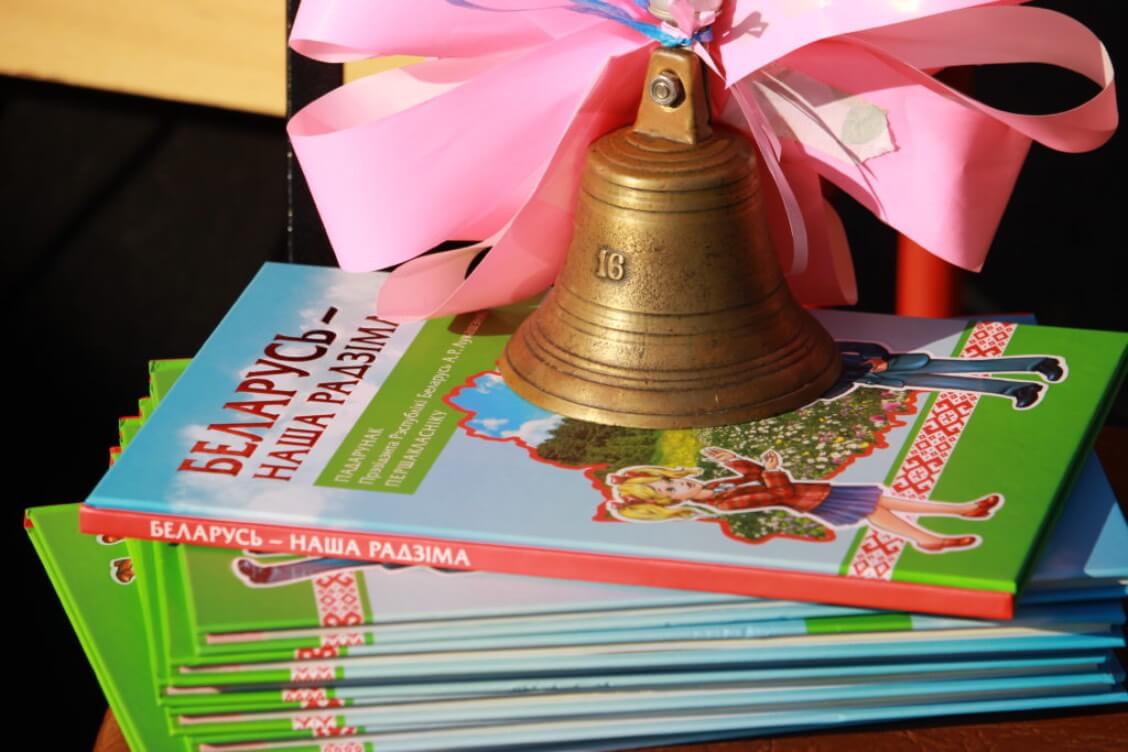
Thousands of young Belarusians pursue higher education abroad. Around 12,000 study in Poland alone, while 10,000 attend universities in Russia.
English mug sparks outrage
Alaksandra (all names have been changed for the safety of sources), a teacher with over 20 years of experience, told The Viewer that indoctrination and anti-Western propaganda in schools has reached “absurd” levels.
She recalled an incident at a school event where a female ideology officer became furious upon noticing an English inscription on her mug. “After the event, she threw a tantrum. She said, ‘Why are you showing children something with a foreign language on it?’” Alaksandra said.
Two years earlier, she noted, English classrooms were stripped of traditional decorations such as posters of London landmarks.
This year, graduation parties are under especially tight control. Songs must be pre-approved in advance. “Our school went even further—they banned foreign-language songs altogether. Only Russian and Belarusian are allowed. Isn’t that absurd?” Alaksandra said.
Maryja, the mother of a graduating student, shared that since February, the class teacher had repeatedly asked parents to disclose which universities their children planned to attend.
“I refused on principle. Yes, my son plans to stay in Belarus, but why should I report that to the school? Once he gets his certificate, their job is done. I’m also superstitious—I don’t like sharing plans,” she said.
Alaksandra confirmed that while administrators promote local universities, the pressure is indirect. “They don’t coerce; they simply highlight the benefits of studying in Belarus.”
Scare stories about EU
According to Alaksandra, this year schools showed propaganda films such as Foreign Sky and Lost in Translation—both depicting the supposed hardships faced by Belarusians studying abroad, especially in Poland and Lithuania. The latter features interviews with students who claim to have regretted leaving Belarus.
These films were also screened at universities, accompanied by meetings with the filmmakers. One such event took place in April at Yanka Kupala State University in Hrodna. Local state TV reported the documentary as an exposé on the “real lives” of Belarusians who emigrated after the 2020 presidential election.
A student interviewed after the screening described the film as “difficult to watch,” saying it made her reflect on “the consequences of a wrong choice”—an echo of the film’s ideological message.
Most Belarusian school websites now feature links to these films.
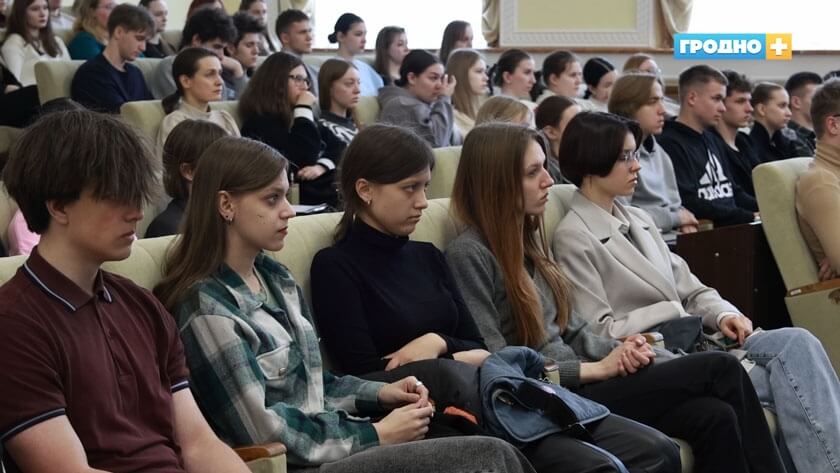
Studying abroad “hurts school’s image”
Žanna, whose son just finished 11th grade at a gymnasium, said parents were also asked to report their child’s summer whereabouts. She noted that students planning to study abroad often conceal their intentions from school officials out of fear that they may be prevented from going abroad.
“They’ll say they’re applying to Belarusian State University, but in reality, they’re going to Russia, Japan, Poland—even to Russian universities with branches in Belarus.”
While school leadership rarely discourages going abroad directly, they promote Belarusian higher education as equal or superior. “It’s no surprise—our gymnasium’s leadership are members of Belaya Rus [a pro-government association],” she added. Leadership positions in schools are filled based on ideological loyalty.
Another frequent argument is that enrolling abroad allegedly harms the school’s reputation. “They tell you, ‘You’ll ruin the gymnasium’s rating!’” Žanna said.
Russia attracts Belarusian graduates
Teacher Natalla noted that more students opt for Russia over Europe. She said Rossotrudnichestvo, a Russian state agency for foreign cooperation, actively recruits Belarusian students through contests, excursions and even free trips to Russian-occupied Crimea.
The Russian House in Homiel runs programs like “Step into the Future” for younger students, and initiatives like “Hello, Russia!” and “New Generation,” which offer all-expenses-paid educational and cultural visits to major Russian cities.
Belarusian students are drawn by visa-free travel, the lack of a language barrier and state-sponsored university quotas (1,300 seats for 2024, unchanged from 2023). These often come with monthly stipends and free dormitory accommodations.
In contrast to Belarus, Russian universities do not impose mandatory job assignments after graduation—making them even more appealing.
Minister offers simple solution
On April 17, Education Minister Andrej Ivaniec addressed concerns over youth emigration in an interview on Belarus 1. “We should proudly tell our students and their parents about our educational achievements—we’ve been too modest,” he said.
He claimed that Belarusian academic standards are superior to those in Europe. As an example, he mentioned the rejection of a Polish university diploma because the student had completed only 50 percent of the coursework required in Belarus.
When these facts are explained, Ivaniec argued, students and parents develop greater respect for Belarusian education.
Ideological control
Total ideological control over the education system is one of the reasons many young people leave the country.
In February 2024, Alaksandar Łukašenka warned university rectors not to hire “former regime-shakers” or individuals who “don’t share our ideology.” He blamed students “brainwashed with Western values” for the protests in 2020 and criticized youth organizations as ineffective and bureaucratic.
Six months later, Minister Ivaniec signed a 40-page directive outlining ideological and educational priorities for the 2024/2025 school year.
The document mandates collaboration with pro-government youth groups such as the Belarusian National Youth Union and the Belarusian National Pioneer Organization. Schools must fly the national flag at ceremonies, display state symbols, and promote awareness of “genocide against the Belarusian people during the Great Patriotic War.”
Flag-raising duties are assigned to student groups, who are required to wear military-style or formal business attire. Sportswear, including shorts and sneakers, is strictly prohibited.
Trying to stem student exodus
Following the 2020 protests against electoral fraud, many high school students fled the country fearing persecution. Russia’s 2022 invasion of Ukraine triggered another wave of emigration amid fears of conscription.
Łukašenka has repeatedly denounced “Western brainwashing” and promised tough measures. “If you studied abroad—fine, work in Lithuania. We’ll manage without you,” he declared in 2021.
His government subsequently shut down private language schools and kindergartens, withdrew Belarus from the Bologna Process and suspended academic exchange programs.
In 2022, Belarus terminated its agreement on mutual recognition of education certificates with Poland.
In 2023, the government rescinded military draft exemptions for students studying abroad. Officials also began meeting with parents of graduates applying for apostilles, urging them to warn their children about the risks of foreign education.
But so far, fear-based propaganda and rigid ceremony protocols have failed to stop students from seeking better opportunities abroad.
